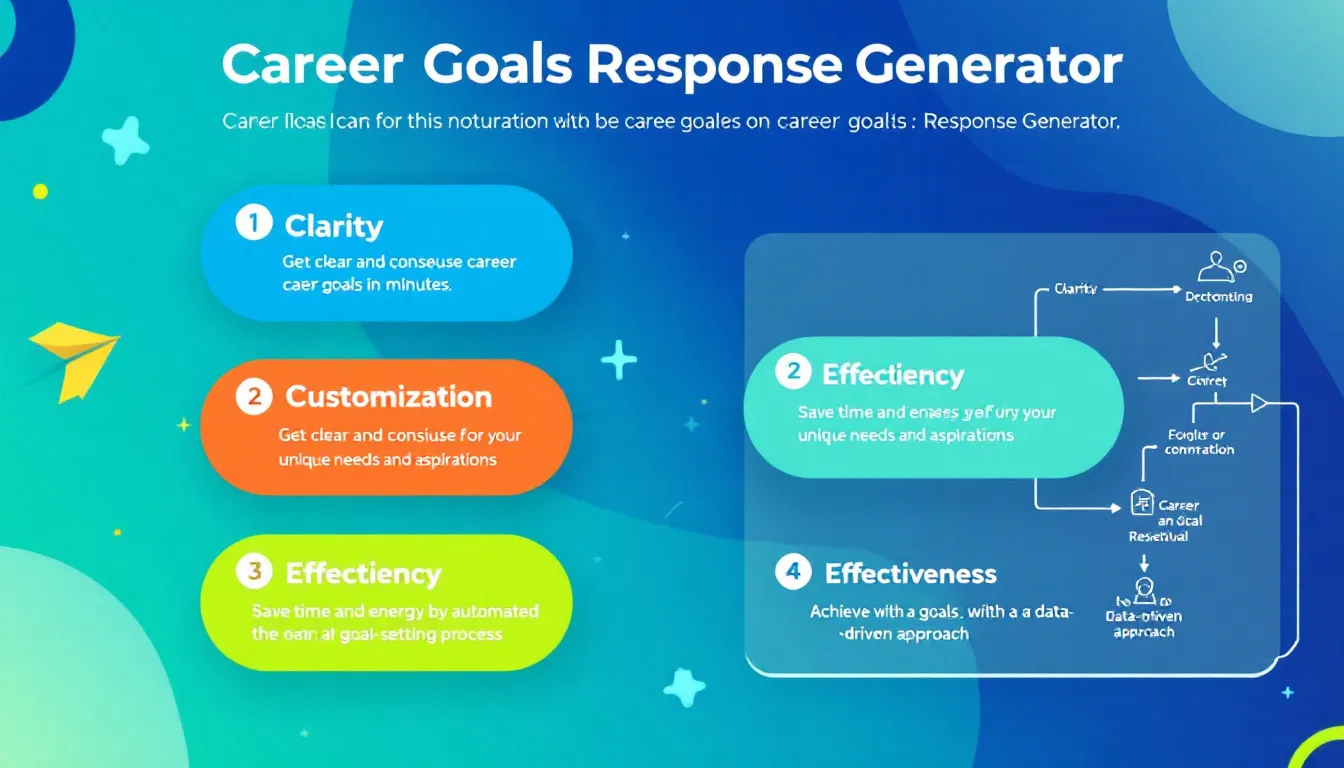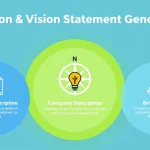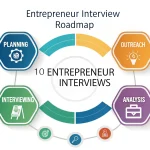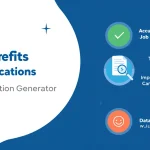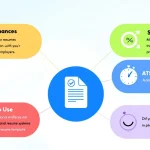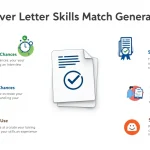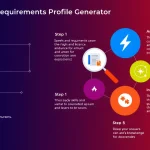Is this tool helpful?
How to Use the Career Goals Response Generator Effectively
The Career Goals Response Generator is a powerful tool designed to help job seekers craft compelling answers to the common interview question, “What are your career goals?” To use this tool effectively, follow these steps:
- Describe Your Career Goals: In the first field, provide a brief but comprehensive description of your short-term and long-term career goals. For example, you might write: “Become a senior software engineer within 3 years, focusing on AI and machine learning. Long-term goal is to lead an innovative tech startup in the field of cognitive computing.”
- Enter Company Mission: Research the company you’re applying to and input their mission statement or primary focus. For instance: “To accelerate the world’s transition to sustainable energy through innovative electric vehicles and renewable energy solutions.”
- Specify Job Role: Enter the exact title of the position you’re interviewing for, such as “Junior Software Developer” or “Data Analyst Intern.”
- List Key Skills (Optional): Include relevant skills that align with both your career goals and the job requirements. For example: “Python programming, data visualization, machine learning algorithms, agile methodologies.”
- Generate Response: Click the “Generate Career Goals Response” button to receive a tailored, strategic answer that aligns your aspirations with the company’s mission and the specific role.
By providing accurate and detailed information in each field, you’ll receive a more personalized and impactful response to use in your interview.
Crafting the Perfect Career Goals Response: Your Ultimate Interview Tool
In the competitive landscape of job hunting, standing out during an interview is crucial. One of the most challenging yet important questions you’ll face is about your career goals. The Career Goals Response Generator is an innovative tool designed to help job seekers articulate their professional aspirations in a way that resonates with potential employers.
This tool goes beyond simple template responses. It creates a tailored, strategic answer that aligns your personal career objectives with the company’s mission and the specific role you’re applying for. By doing so, it demonstrates your ambition, clarity of vision, and how you can be a valuable long-term asset to the organization.
The Purpose and Benefits of the Career Goals Response Generator
The primary purpose of this tool is to empower job seekers to present their career goals in the most compelling and strategic manner possible. It aims to:
- Align your personal aspirations with the company’s objectives
- Showcase your understanding of the industry and your role within it
- Demonstrate your potential for growth and long-term value to the organization
- Present a clear, concise, and impactful response that leaves a lasting impression
By utilizing this tool, you gain several benefits:
- Increased confidence in addressing challenging interview questions
- A strategic approach to presenting your career trajectory
- Better chances of impressing interviewers with a well-thought-out response
- The ability to tailor your answer to each specific job opportunity
Maximizing the Benefits of the Career Goals Response Generator
To get the most out of this powerful tool, consider the following strategies:
1. Thorough Self-Reflection
Before using the generator, spend time reflecting on your true career aspirations. Consider questions like:
- Where do you see yourself in 5, 10, or 15 years?
- What skills do you want to develop or master?
- What kind of impact do you want to make in your industry?
The more genuine and thoughtful your input, the more authentic and impactful your generated response will be.
2. Comprehensive Company Research
Dive deep into researching the company you’re applying to. Look beyond just their mission statement. Understand their:
- Core values and culture
- Recent achievements and future plans
- Industry position and competitive advantages
This knowledge will help you provide more accurate information to the generator, resulting in a response that truly resonates with the company’s ethos.
3. Tailoring to Specific Roles
Each job role has unique requirements and growth trajectories. When inputting the job role, consider:
- The specific responsibilities of the position
- Potential career paths within the company for this role
- How this role fits into the larger organizational structure
This specificity will allow the generator to create a response that shows how your career goals align perfectly with the position you’re applying for.
4. Skill Alignment
When listing your key skills, focus on those that are:
- Directly relevant to the job role
- Aligned with your stated career goals
- In high demand in your industry
This approach ensures that your generated response highlights how your skill set makes you an ideal candidate for both the immediate role and long-term growth within the company.
How the Career Goals Response Generator Addresses User Needs
The Career Goals Response Generator is designed to address several key challenges that job seekers face when preparing for interviews:
1. Overcoming Interview Anxiety
Many candidates feel nervous about articulating their career goals clearly and convincingly. This tool provides a structured, well-thought-out response, boosting confidence and reducing anxiety.
2. Bridging the Experience Gap
For those early in their careers or changing industries, it can be challenging to connect their aspirations with a new role. The generator helps create a narrative that shows potential and enthusiasm, even if direct experience is limited.
3. Demonstrating Company Fit
By incorporating the company’s mission into the response, the tool helps candidates show how their personal goals align with the organization’s objectives, increasing their appeal as a potential long-term asset.
4. Balancing Ambition and Realism
The generator creates responses that showcase ambition while remaining grounded in the realities of the role and industry, striking a crucial balance that impresses interviewers.
Practical Applications and Examples
Let’s explore some practical applications of the Career Goals Response Generator through examples:
Example 1: Entry-Level Marketing Position
Input:
- Career Goals: Develop expertise in digital marketing strategies, progress to a marketing manager role within 5 years, ultimately aiming to become a CMO.
- Company Mission: To revolutionize e-commerce through innovative customer experiences and AI-driven personalization.
- Job Role: Digital Marketing Associate
- Key Skills: Social media marketing, content creation, basic data analysis, SEO/SEM
Generated Response:
“My career goal is to become a leader in digital marketing, driving innovation and growth in the e-commerce sector. In the short term, I aim to immerse myself in cutting-edge digital marketing strategies, particularly in AI-driven personalization, which aligns perfectly with your company’s mission. As a Digital Marketing Associate, I plan to leverage my skills in social media marketing and content creation to contribute to your innovative customer experiences. Over the next five years, I aspire to grow into a marketing manager role, where I can lead teams in implementing data-driven marketing strategies. Ultimately, my long-term vision is to reach a C-level marketing position, where I can shape the future of e-commerce marketing on a larger scale. I’m excited about the opportunity to start this journey with your company, as your focus on revolutionary e-commerce solutions provides the ideal environment for my professional growth and the realization of my career aspirations.”
Example 2: Mid-Career Software Engineering Position
Input:
- Career Goals: Transition from backend to full-stack development, lead a development team within 3 years, eventually become a CTO or start a tech company.
- Company Mission: To create scalable, secure cloud solutions that empower businesses of all sizes to innovate faster.
- Job Role: Senior Software Engineer
- Key Skills: Java, Python, AWS, microservices architecture, agile methodologies
Generated Response:
“My career trajectory is closely aligned with the evolving landscape of cloud technology and scalable solutions, which is why I’m particularly excited about this opportunity with your company. In the immediate future, my goal is to expand my expertise from backend development to full-stack engineering, focusing on creating scalable and secure cloud solutions that align perfectly with your company’s mission. As a Senior Software Engineer, I plan to leverage my experience in Java and Python, along with my knowledge of AWS and microservices architecture, to contribute significantly to your innovative projects. Within the next three years, I aim to grow into a leadership role, heading a development team and driving the adoption of cutting-edge technologies and agile methodologies. Long-term, I aspire to move into a CTO position or channel my accumulated expertise into founding a tech company that pushes the boundaries of cloud innovation. Your company’s commitment to empowering businesses through scalable cloud solutions provides an ideal platform for me to pursue these goals while making a meaningful impact in the industry.”
Frequently Asked Questions
1. How specific should I be about my career goals?
It’s best to be specific about your short-term goals (1-5 years) and more general about long-term aspirations. This shows you have a clear plan but also remain flexible for future opportunities.
2. Should I mention salary expectations in my career goals?
It’s generally best to avoid mentioning specific salary expectations when discussing career goals. Focus instead on professional development, responsibilities, and the value you aim to bring to the organization.
3. How can I make my career goals sound ambitious yet realistic?
Balance your aspirations with the typical career progression in your field. Research common career paths in your industry and align your goals with these trajectories while showcasing your enthusiasm to excel.
4. Is it okay to mention goals that might take me away from the company eventually?
While it’s good to be honest, focus on goals that show how you can grow within the company. If you have entrepreneurial aspirations, frame them in a way that demonstrates how the skills you’ll gain will benefit the company in the meantime.
5. How often should I update my career goals?
It’s a good practice to revisit and refine your career goals annually or whenever there’s a significant change in your professional life or industry. This ensures your goals remain relevant and aligned with your current aspirations and market trends.
6. What if my career goals change after I’m hired?
It’s natural for goals to evolve. If this happens, have an open discussion with your manager about your new aspirations. Many companies appreciate employees who are proactive about their professional development.
7. How can I demonstrate commitment to my stated career goals?
Mention specific actions you’re taking or plan to take to achieve your goals, such as pursuing relevant certifications, attending industry conferences, or taking on additional responsibilities that align with your aspirations.
8. Should my career goals always align exactly with the job I’m applying for?
While your goals should relate to the position, it’s okay if they extend beyond it. Show how the role is a crucial step towards your larger career aspirations, demonstrating both your immediate value and long-term potential.
9. How do I handle questions about career goals if I’m changing industries?
Focus on transferable skills and experiences. Explain how your past experiences and future goals align with the new industry, showing enthusiasm for learning and growing in the new field.
10. Can I use the generated response verbatim in my interview?
While the generated response provides an excellent framework, it’s best to use it as a guide and personalize it further. Add your own voice and specific examples to make the response uniquely yours and more genuine.
By leveraging the Career Goals Response Generator and understanding how to effectively articulate your professional aspirations, you’ll be well-equipped to impress interviewers and take a significant step towards landing your dream job. Remember, the key to a successful interview lies not just in having goals, but in demonstrating how these goals align with the company’s mission and how you plan to add value throughout your career journey.
Important Disclaimer
The calculations, results, and content provided by our tools are not guaranteed to be accurate, complete, or reliable. Users are responsible for verifying and interpreting the results. Our content and tools may contain errors, biases, or inconsistencies. We reserve the right to save inputs and outputs from our tools for the purposes of error debugging, bias identification, and performance improvement. External companies providing AI models used in our tools may also save and process data in accordance with their own policies. By using our tools, you consent to this data collection and processing. We reserve the right to limit the usage of our tools based on current usability factors. By using our tools, you acknowledge that you have read, understood, and agreed to this disclaimer. You accept the inherent risks and limitations associated with the use of our tools and services.
